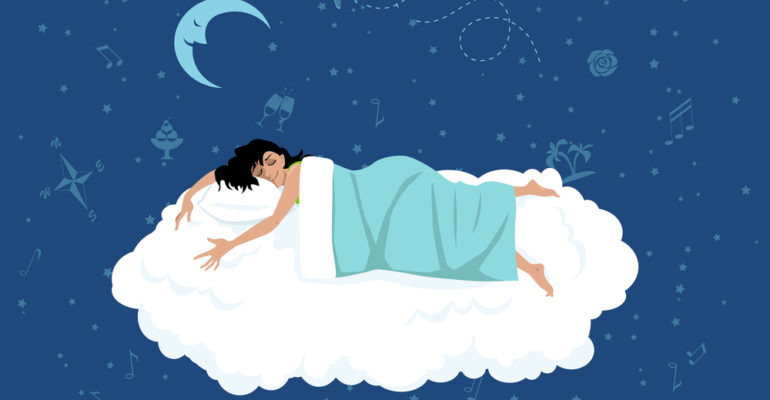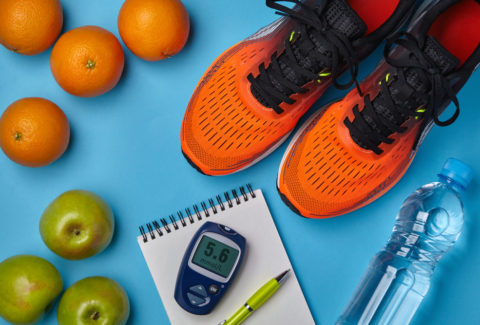A Practical Guide to Optimal Sleep in 2024
As we step into 2024, one of the most transformative gifts we can give ourselves is the commitment to a good night’s sleep. Quality sleep is foundational to overall well-being, affecting physical health, mental clarity, and emotional resilience.[1] In this comprehensive guide, we’ll explore practical steps and bedtime rituals to cultivate restful nights, setting the stage for a fulfilling year ahead.
Create a Consistent Bedtime Routine & Mind Your Bedtime Hygiene:
Establish a soothing bedtime routine[2] to signal to your body that it’s time to wind down. This could include activities such as reading a book, taking a warm bath, or practicing gentle stretching and breathing exercises. Consistency is key to reinforcing this calming ritual.
- Avoid Stimulants: Refrain from consuming caffeine, nicotine, and other stimulants at least 4-6 hours before bedtime.[3]
- Hydrate Mindfully[4]: Limit fluid intake close to bedtime to avoid disruptive trips to the bathroom during the night.
- Alcohol: While alcohol might induce drowsiness initially, it can disrupt sleep cycles later in the night. Consume alcohol in moderation or abstain altogether and avoid it close to bedtime.[5]
- Tech-Free Zone: Create a tech-free zone at least an hour before bedtime. The blue light emitted from screens[6] can interfere with melatonin production, making it harder to fall asleep. opt for a relaxing activity instead, such as reading a physical book or practicing meditation.
Begin preparing for the night as soon as your day starts:
- Morning Exercise Routine: Incorporate regular physical activity into your routine, preferably in the morning. Exercise promotes better sleep, but try to avoid vigorous workouts close to bedtime.[7]
- Worry Time: Designate a specific time during the day for addressing worries, reducing anxiety-related disturbances at bedtime.
- Mind Your Mealtime: Timing Matters: Aim to finish your last substantial meal 2-3 hours before bedtime. “If hungry, embrace the chance to practice fasting. If fasting isn’t an option, consider a light, sleep-friendly snack such as a small serving of nuts or an apple.[8]
Addressing Sleeplessness:
- The 40-Minute Rule: If unable to fall asleep within 40 minutes, get up and engage in a relaxing activity until you feel sleepy.
- Manage Midnight Wake-Ups: Stay Calm: If you find yourself awake in the middle of the night, resist the urge to check the clock or stress about the next day. Instead, focus on calming activities such as deep breathing or gentle stretching.
- Dim Lighting: Use dim, soft lighting if you need to move around during the night to minimize the impact on your circadian rhythm.
- Nightmare Management: For those dealing with recurring nightmares, consider the following therapeutic approach: Write down the nightmare before bedtime but alter the ending to a more positive or neutral outcome. This technique, known as “scripting,” can empower you to reframe and take control of your dreams.
Embarking on the new year with a commitment to better sleep is a gift to your physical and mental well-being. Implementing these practical steps and incorporating healthy sleep habits into your routine will pave the way for restful nights and energized, fulfilling days in 2024. SWEET dreams and a rejuvenating year ahead!
What’s Next:
- Review our previous articles in the lifestyle series.
- Anticipate upcoming content in our lifestyle mental health series, as we delve deeper into the pillars of health and wellbeing.
- Stay informed on the role of lifestyle in overall health and wellness by keeping up with the latest research and recommendations.
- Initiate more frequent discussions with your clients about their lifestyles, understanding potential barriers, and assisting them in overcoming obstacles to adopting optimal habits.
We recognize that changing habits can be challenging, but motivation is a powerful force that can be nurtured by guiding our patients through the stages of change. As clinicians, possessing awareness, understanding, insight, and knowledge about lifestyle is crucial for inspiring positive transformations. This series aims to provide you with essential tools to empower yourself and assist your patients and clients on their journey to optimal well-being.
Until our next article, let’s continue mastering the process of discovery and healing through the power of lifestyle.
[1] Ramar, Kannan, et al. “Sleep is essential to health: an American Academy of Sleep Medicine position statement.” Journal of Clinical Sleep Medicine 17.10 (2021): 2115-2119.
[2] Larsen, Kristy. “Consistent Bedtime Routines are Linked to Better Sleep Outcomes: Why?.” (2021).
[3] Clark, Ian, and Hans Peter Landolt. “Coffee, caffeine, and sleep: A systematic review of epidemiological studies and randomized controlled trials.” Sleep medicine reviews 31 (2017): 70-78.
[4] Ellis, RyanOneil T., et al. “The Effect of Hydration Status on Sleep Quality: A Pilot Study.” International Journal of Exercise Science: Conference Proceedings. Vol. 2. No. 15. 2023.
[5] Park, Soon-Yeob, et al. “The effects of alcohol on quality of sleep.” Korean journal of family medicine 36.6 (2015): 294.
[6] Christensen, Matthew A., et al. “Direct measurements of smartphone screen-time: relationships with demographics and sleep.” PloS one 11.11 (2016): e0165331.
[7] Goldberg, Mathias, et al. “Effects of morning and evening physical exercise on subjective and objective sleep quality: an ecological study.” Journal of Sleep Research (2023): e13996.
[8] Nogueira, Luciana FR, et al. “Timing and composition of last meal before bedtime affect sleep parameters of night workers.” Clocks & Sleep 3.4 (2021): 536-546.







